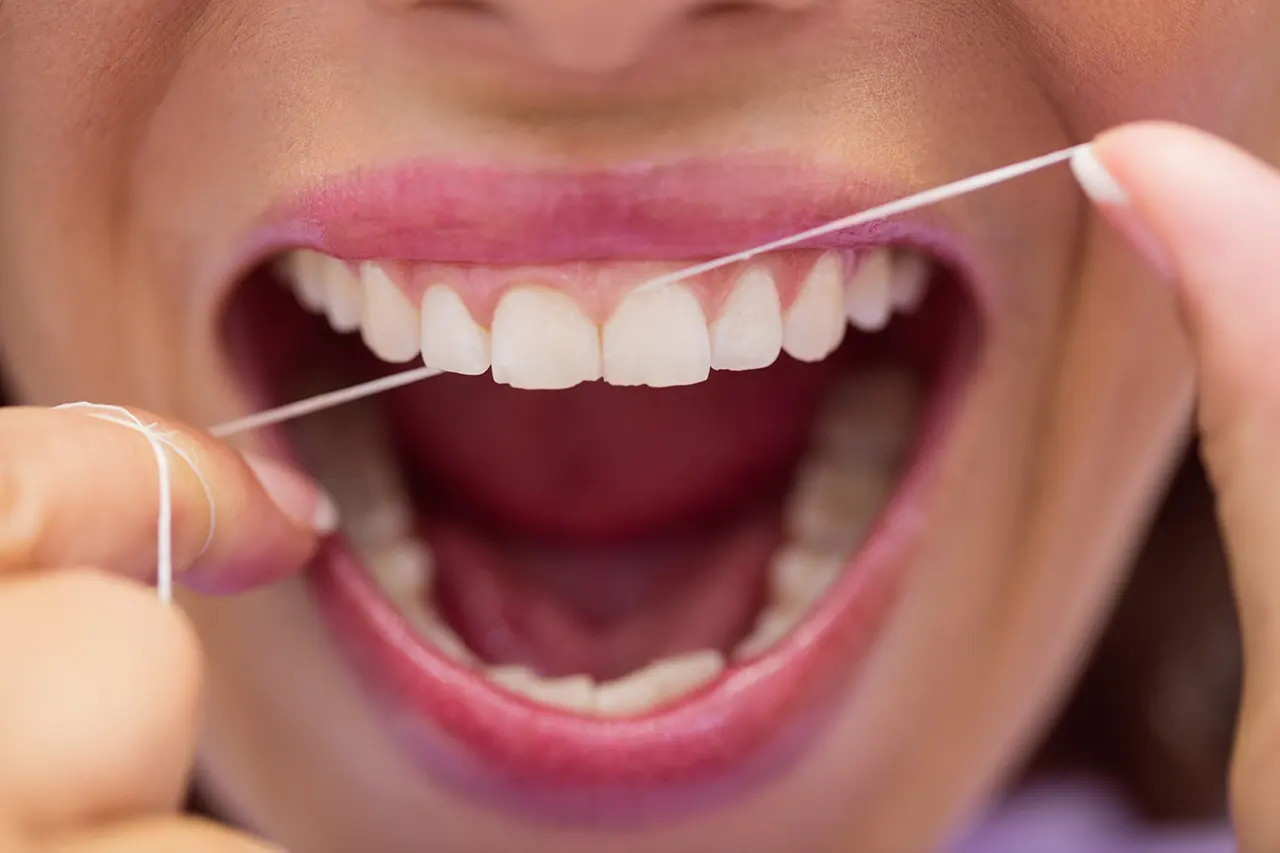Flossing is often seen as a tedious and time-consuming task, but little do we know that this simple habit holds a plethora of benefits that can significantly impact our overall health. From preventing heart disease to improving mental health, flossing is much more than just a way to clean your teeth and gums.
Flossing is the process of cleaning the spaces between your teeth and gums that a toothbrush cannot reach. By removing plaque and food particles that have accumulated in these areas, flossing helps to prevent tooth decay and gum disease. This is the most well-known benefit of flossing, but it’s far from being the only one.
One lesser-known fact is that flossing can help to prevent heart disease. Studies have found that the bacteria that cause gum disease can also contribute to the development of heart disease by entering the bloodstream and causing inflammation in the blood vessels. Flossing helps to remove these bacteria and reduce the risk of heart disease. In fact, research suggests that people with gum disease are almost twice as likely to suffer from heart disease.
Flossing can also improve your mental health. Research has shown that people who floss regularly have lower levels of stress and anxiety. This is likely because flossing triggers the release of endorphins, the “feel-good” chemicals in the brain that can help to reduce stress and improve mood. In addition to this, flossing can also help to improve your self-esteem and confidence, a healthy, clean mouth can make you feel better about yourself, and this can have a positive impact on your overall well-being.
Another surprising benefit of flossing is that it can help you to sleep better. When you floss, you are stimulating the trigeminal nerve, which is responsible for sensation in the face, jaw, and teeth. This stimulation can help to relax the jaw and reduce tension, leading to a better night’s sleep. Flossing can also help to prevent bad breath. When food particles and bacteria are allowed to accumulate between the teeth, they can lead to bad breath. By flossing regularly, you can remove these particles and bacteria, helping to freshen your breath.
Flossing can also help to prevent cavities. Plaque, a sticky film of bacteria that forms on the teeth, can lead to tooth decay and cavities if not removed. Since flossing helps to remove plaque, it can help to prevent cavities.
Lastly, flossing can help to boost your immune system. When you floss, you are removing harmful bacteria from your mouth. This can help to boost your immune system and make it easier for your body to fight off infections. Regular flossing can also help to prevent chronic inflammation, which is a contributing factor to many diseases such as diabetes, cancer, and heart disease.
Here’s the best-selling floss on Amazon.
Flossing can also help to save you money in the long run. By preventing tooth decay and gum disease, you can avoid costly dental procedures such as fillings, root canals, and extractions.
Now, many people may be wondering about the best way to floss. The American Dental Association recommends using about 18 inches of floss, winding it around your middle fingers, and using your thumbs and index fingers to guide the floss between your teeth. You should use a gentle back-and-forth motion, and make sure to curve the floss around the base of each tooth. Make sure to floss both sides of every tooth, and don’t forget the back molars!
Flossing can be a little tricky at first, but with practice, it will become a quick and easy habit. Some people may find that using a water flosser or interdental brush is easier for them. It is important to find a method that works for you and to make it a daily routine.
It’s also worth noting that flossing is not just for adults, children can benefit from flossing as well. Parents should start teaching their children how to floss as soon as they have two teeth that touch, usually around age 2 or 3. This can help to prevent tooth decay and gum disease, as well as establish a good oral hygiene routine for life.
In addition, flossing is not only beneficial for oral health, but it can also help in preventing other diseases. For example, flossing can help in preventing diabetes by removing harmful bacteria from the mouth, which can help to prevent chronic inflammation. Flossing can also help in preventing pregnancy complications by reducing the risk of bacterial infections.
Flossing is an essential part of maintaining good oral health and overall well-being. From preventing heart disease to improving mental health, the benefits of flossing are many and varied. By incorporating flossing into your daily routine, you can enjoy better health and a more confident smile. Remember, flossing just once a day can make a big difference in the long run, so make sure to add it to your daily oral care routine.
It’s important to note that flossing should be done in conjunction with brushing, not as a replacement. Brushing removes plaque and food particles from the surface of your teeth, while flossing removes particles and plaque from between your teeth. Together, they can effectively remove plaque and bacteria from all surfaces of your teeth and gums, giving you the best chance of maintaining good oral health.
In conclusion, Flossing is a simple yet powerful habit that can have a major impact on our overall health. Not only does it prevent tooth decay and gum disease, but it can also help to prevent heart disease, improve mental health, and even help us sleep better. So next time you consider skipping the floss, remember the hidden benefits and make it a part of your daily routine.
Read More:
⇛ The 4 Most Common Reasons That Cause Excessive Sweating
⇛ Why Do You Always Wake Up At The Same Time At Night?
⇛ Are We All Flossing Completely Wrong?













